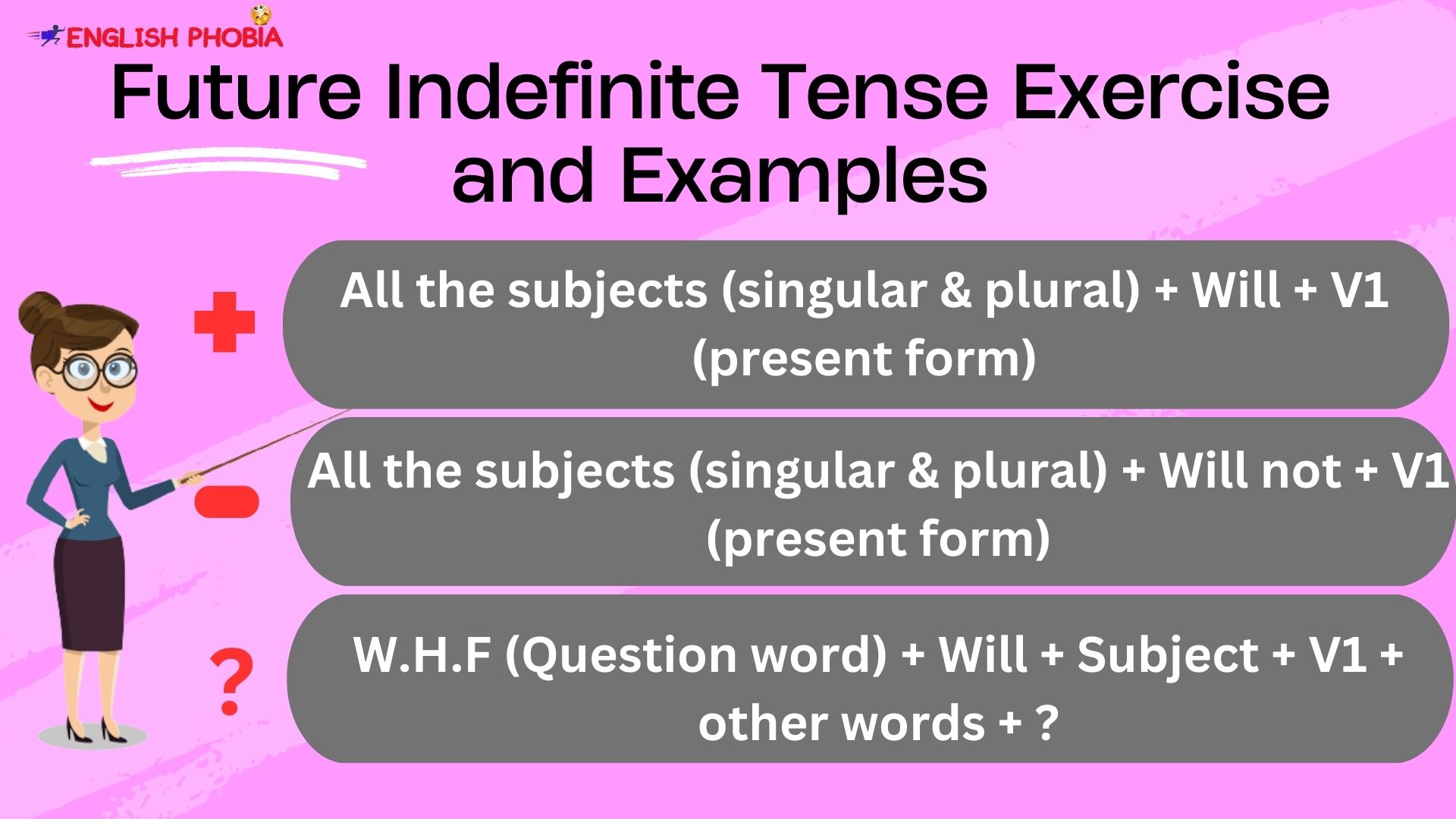Are you an English learner and do you want to share your upcoming plans with your friends but have no idea how to do it?
In this article, we are going to learn the rule of future indefinite tense and instances where we can use it with examples and exercises.
We will learn how to describe any upcoming or futuristic incidents or action plans in this tense. Although all the tenses are very important to learn English yet this is one of the easiest and most useful tenses in English grammar.
It is a very interesting and quite simple tense to use. Even beginners can make an impression on the audience by using this tense so let's dive into the deep knowledge about the future indefinite tense.
Read more: Past Indefinite Tense
What is the helping verb of future indefinite tense?
The future indefinite tense helping verb is a modal auxiliary verb “Will”. We take the help of two model verbs “will and shall”. We do not have any specific words to display the futuristic actions. These days we only use ‘Will’ and avoid using ‘Shall’.
When to use Future Indefinite Tense
1 Show upcoming actions; whenever you wish to share your futuristic plans, always use this tense.
2 Adverbs of time; with some adverbs of time such as tomorrow, overmorrow (the day after tomorrow), next Monday, next year, next class, after two years, after some time, soon, after a while, etc.
3 Conditional clause; the conditional clause can never be in the future tense, but its result always falls in this tense.
4 Future dates; 2025, April 5, 2023, etc.
5 Future prediction; by 9 o’clock, by tonight, by evening.
How to form sentences
The future indefinite tense rule is very simple and easy to use. Since we take the help of a model verb to form sentences in this tense. Therefore we always use the first form of the verb (V1) with it.
How to form assertive sentences
All the subjects (singular & plural) + Will + V1 (present form)
Traditional Use of Future Indefinite Tense
Read more:
https://www.englishphobia.com/2023/03/future-indefinite-tense-exercise-and-examples.html







